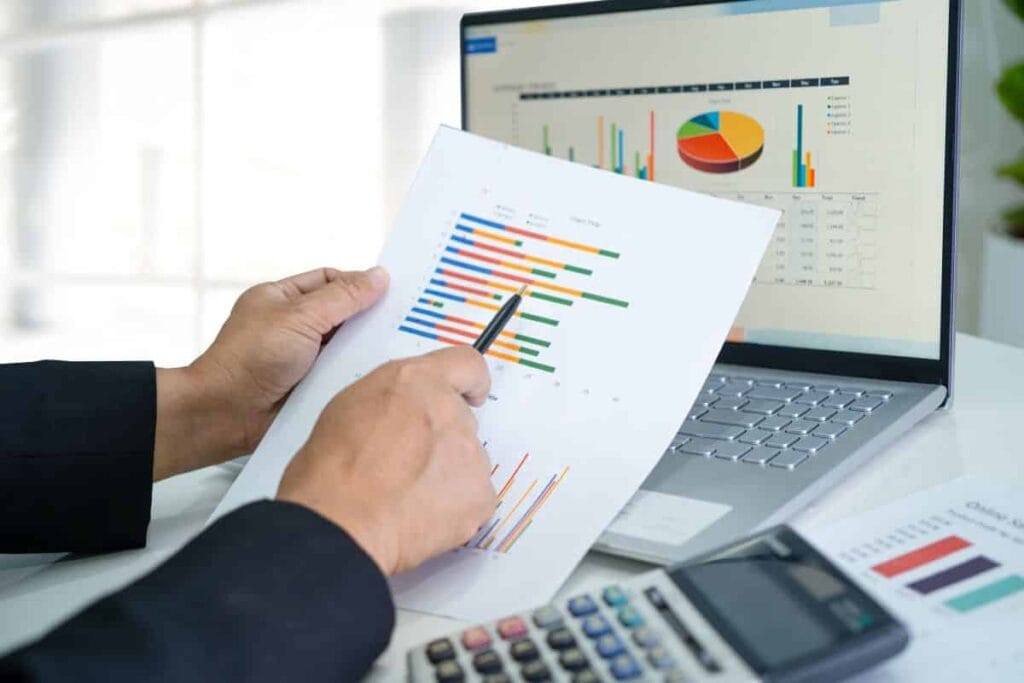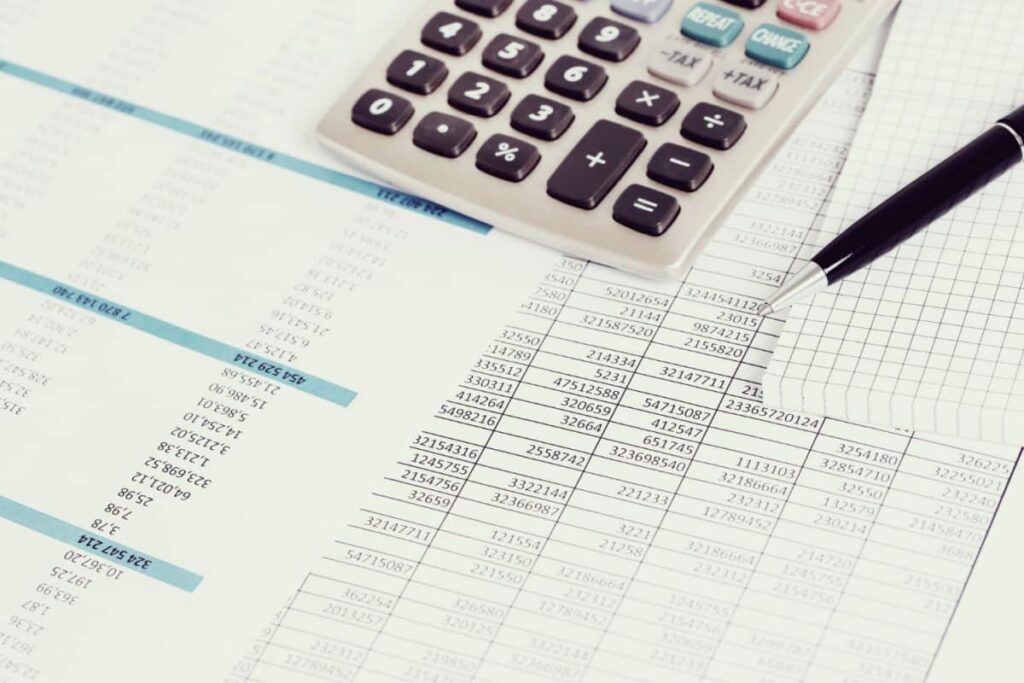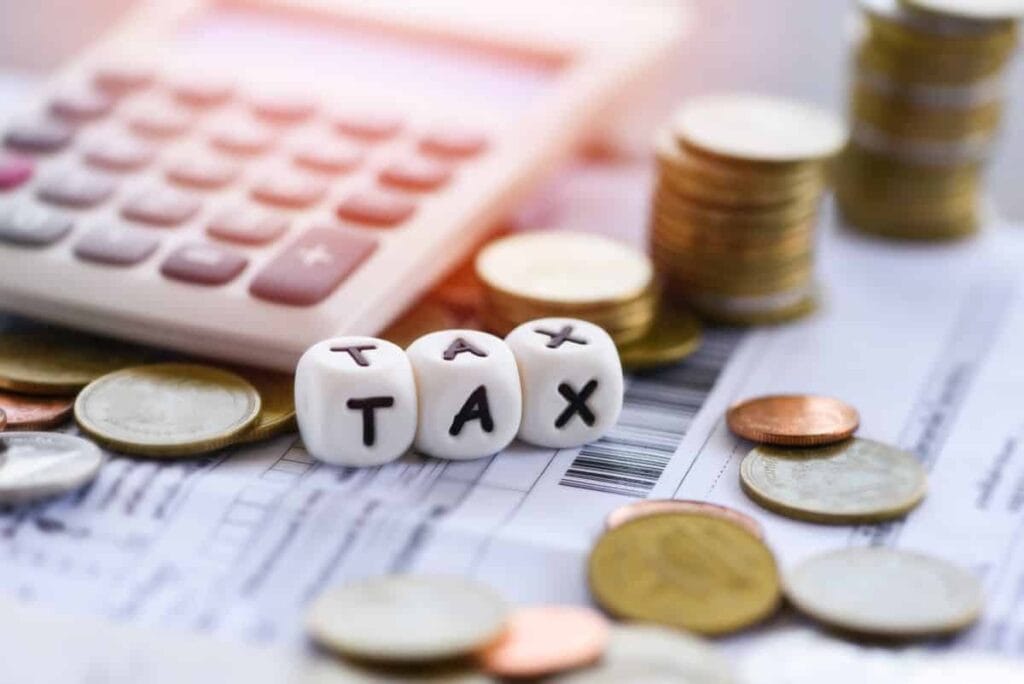There are various ways to optimise your tax return in 2024.
Know Your Deductions
Tax deductions might be confusing, but with help, you can optimise your tax refund. Understanding what you may claim and how to prove it in Australia is crucial. Break out the essentials:
1. Work-Related Expenses
This category is often where most taxpayers can claim deductions. You're probably doing well if you spend money on income-related stuff. This could include:
- Uniforms and Workwear: Claiming costs for particular uniforms, protective clothes, and laundry are allowed.
- Tools and Equipment: Tools and equipment purchased for work might be claimed. You must depreciate things exceeding $300 throughout their useful life.
- Travel Expenses: These expenditures may be deducted if your employment necessitates travel. This generally includes travel between job locations or conferences but not to and from work.
2. Home Office Costs
Remote employment has made home office deductions increasingly important. Claiming these expenditures requires a home office. Expenses can include:
- Utility Costs: You can claim some of your heating, cooling, and lighting expenditures.
- Internet and Phone Bills: Use of your phone or internet for work might deduct some of these expenditures.
- Depreciation on Equipment: Home office computers, desks, and chairs might be depreciated.
3. Professional Subscriptions and Memberships
Professional association or journal membership expenses can be recovered if relevant to your employment.
4. Education and Training
If you're upskilling or undertaking training directly related to your current job, these costs can be deductible. This doesn't include courses for a potential career change.
5. What's Not Deductible
Equally crucial is knowing what you can't claim. Personal costs, typical work-related travel, and employer-reimbursed items cannot be claimed.
6. Consult a Professional
Tax laws can be complex and often worth consulting with a tax professional. At Tax Warehouse, we can provide personalised advice and ensure you maximise your deductions.
Understanding and claiming your deductions is an art in itself. It requires knowing what's allowed, keeping immaculate records, and sometimes seeking expert advice. Mastering this can significantly boost your tax refund, turning tax time from a chore into a more rewarding experience.
Charitable Contributions
Australian charity donations are both a way to give back and save tax. Understanding how these gifts affect tax returns may be lucrative for many Australians.
First, registered charity gifts reduce taxable income. The Australian Tax Office (ATO) must acknowledge the charity as a 'Deductible Gift Recipient' (DGR). Your charitable gifts to the arts, disaster relief, or medical research can lower your tax burden.
Several things should be considered. Your gift must be $2 or more and have a receipt to be tax-deductible. Remember to keep these receipts structured throughout the year in a folder or digital record for tax season.
Understanding non-deductible gifts is crucial. If you receive a lottery ticket or charity meal in exchange for your donation, it's not tax-deductible. These transactions aren't donations since the ATO considers them a refund.
Your charity giving goes beyond tax benefits and shows generosity. They care about people and the community. Your donations matter whether you care about education, healthcare, or the environment. You're supporting issues you care about and using your money to help.
In the big picture, charity gifts combine personal ideals and prudent financial strategy. By donating to registered organisations and keeping good records, you improve the world and get a tax break. This strategy embodies Australian generosity, converting individual efforts into group progress.
Superannuation Contributions
Exploring superannuation contributions reveals a valuable tax management and financial security tool. Australian superannuation is a retirement savings scheme and tax-advantaged investment. You may reduce your tax burden and enhance your retirement nest egg by contributing more to your superannuation.
When you give more to your super than your employer, they are optional contributions. They are concessional or non-concessional. Before-tax donations like salary sacrifice and tax-deductible personal contributions are concessional. The fund taxes them at 15%, frequently less than your marginal tax rate. This tax rate differential might save a lot if you're in a higher-income category.
However, non-concessional contributions are made from after-tax income. These don't give an immediate tax benefit, but super fund profits are taxed less than other investments, giving them long-term benefits.
Low- to middle-income people receive government incentives for super contributions. The government co-contribution plan matches qualified after-tax super contributions up to a maximum. If your spouse is low-income or unemployed, donating to their super may qualify you for a tax deduction.
Know the donation caps. Tracking your contributions is crucial since exceeding these limitations might result in extra taxes. Check the revised limitations on the Australian Taxation Office (ATO) website or visit a financial expert for 2024.
Remember, superannuation is long-term. While it delivers tax benefits today, its main objective is retirement financial help. Thus, you must assess your finances, retirement goals, and tax situation before contributing more. To optimise superannuation contributions, see a financial professional for individualised guidance.
Investment Property Expenses
Australian investment property costs provide several tax benefits but must be navigated carefully. Maximising tax advantages from investment property costs requires knowing what may be claimed on your tax return.
First, most property owners deduct loan interest quite heavily. Interest paid on an investment property mortgage can be claimed. This is many property investors' biggest deductible. Your mortgage interest is deductible, but not your principal.
Property management costs are another major deductible item. Hire a real estate agent or manager to handle your rental property and deduct their expenses. This involves advertising, screening, and overseeing the property's daily operations.
You can deduct maintenance and repairs related to rental wear and tear. Fixing fixtures, painting, and plumbing are examples. However, repairs and upgrades are taxed differently, so it's important to distinguish. Capital improvements are depreciated over several years and are not immediately deductible.
Council and strata fees are commonly ignored yet legal deductions. These property-ownership expenditures are entirely deductible.
Many property investors also pay insurance. Your landlord insurance covers tenant-related risks, including loss of rental revenue and damage and is deductible. Your goods and appliances can be insured, as can the building.
Although less evident, depreciation might be advantageous. Over time, the property's fixtures and fittings lose value. A quantity surveyor's depreciation schedule might show what you can claim.
Utility bills not paid by renters might be claimed. This covers water, gas, and electricity costs while renting the property.
Australian investment property owners can benefit from tax breaks but must keep detailed cost records. You need proper paperwork to maximise your tax return and comply with the ATO.
Tax regulations are complicated and change frequently, so contacting a property investment tax consultant or accountant might be helpful. They may assist you in understanding property-related deductions to optimise your tax return while complying with the law.
Education and Self-Improvement
Exploring education and self-improvement, it's intriguing to discover how investing in yourself may increase your abilities and lower your Australian tax payment. The Australian Taxation Office (ATO) allows individuals to deduct some educational costs if they are directly relevant to their present work to encourage continual learning and professional growth.
We consider several activities when assessing education and self-improvement costs. These include industry-specific training, upskilling courses, or professional lectures. Relevance to your job is crucial. The ATO is clear that the course or study must preserve or develop the skills or information you need in your existing job or raise your income from your current job.
A session on new teaching methods may be deductible if you're a teacher. IT professionals can deduct the cost of learning new programming languages on their tax returns. Cover only courses relating to potential or future employment.
Education costs are also broadly deductible. It covers course fees, textbooks, stationery, travel to and from school (if not a private excursion), and depreciation on study equipment like laptops and tablets. Importantly, employer-reimbursed costs are not deductible.
Possible overlap with personal spending is another factor. The ATO requires you to split personal and professional spending. Calculate and claim the study-related costs if you use your laptop for coursework and personal usage.
Educating and improving yourself improves your career and pays well at tax time. You're investing in your career and finances. As usual, keep proper records and receipts, and consult a tax professional if you need clarification on what you may claim. They can explain and maximise your tax deductions in this area.
Income Protection Insurance

Income protection insurance in Australian taxes is typically disregarded but potentially important for tax planning. Income protection insurance provides peace of mind and a tax-efficient way to sustain yourself if you are sick or injured.
Income protection insurance premiums are tax-deductible, making it significant for tax purposes. The policy safeguards your revenue. Since these premiums relate to generating income, the ATO recognises them as a personal deduction.
The mechanics are simple but useful. Your income protection insurance premiums lower your taxable income. High-income categories with higher tax rates may benefit from this decrease. Claiming the premium as a deduction reduces the insurance cost by recouping some of it in your tax refund.
Income protection insurance should be distinguished from life, trauma, and critical illness insurance. Other insurance plans don't give tax-deductible premiums because they're not tied to income loss. Thus, understanding your insurance coverage is essential for tax deductions.
The income protection policy must be kept outside of superannuation to deduct the premium. Superannuation policies may have varying tax consequences and personal tax benefits.
Keeping proper insurance payment records is crucial to maximise this benefit. Maintaining insurance statements or invoices will help you prove your claim on your tax return.
Income protection insurance protects your finances and provides a tax benefit. This smart choice balances financial planning with health. Always seek a tax or financial counsellor for specific guidance, especially when managing taxation and insurance. They can tailor advice to optimise tax benefits and protect income.
Use Technology
In today's digital age, leveraging technology can significantly streamline filing tax returns and maximising deductions, especially in Australia. One notable example of this technological advancement is Tax Warehouse, a registered tax agent service. This platform embodies the intersection of convenience, efficiency, and expert tax assistance, making it an excellent resource for Australians looking to optimise their tax returns.
Tax Warehouse stands out for several reasons. First, registered tax agents are qualified to handle tax concerns. This knowledge is essential for understanding the Australian tax system and complying with ATO rules. Their tax law expertise means they can assist you in finding all your deductions and avoid losing money.
Tax Warehouse's website lets you file taxes online, which is another benefit. This is unmatched convenience. It implies you can do your taxes from home or work without visiting a tax professional. Online tax management saves time and gives you more freedom.
Moreover, the process with Tax Warehouse is designed to be quick and user-friendly. They explain each tax return stage on their site. Tax files may be overwhelming, so this simplicity of use is helpful. It simplifies the procedure, making it accessible to everyone, regardless of their tax knowledge level.
Affordability is another aspect where Tax Warehouse shines. They offer a cost-effective tax preparation and filing solution, a significant consideration for many individuals. At Tax Warehouse, we can help you maximise your tax refund due to its price and experience.
At Tax Warehouse, we make tax preparation and filing easier, faster, and profitable. Their experience, simplicity, and cost meet the demands of modern Australian taxpayers, making it easy to maximise your taxes.
Health Insurance
Understanding the consequences of Australia's health insurance tax is complicated. Health insurance is important for both your tax computations and healthcare access.
The Australian government encourages private health insurance with incentives and levies. The Medicare Levy Surcharge (MLS) applies to Australian taxpayers without private medical coverage who earn above a specified income threshold. The premium encourages high-earners to buy private health insurance, lowering public health system demand.
If you don't have private healthcare insurance and earn over a certain amount, the MLS can add 1% to 1.5% to your tax bill. The MLS fee can be costly, frequently more than basic private hospital insurance coverage. Private health insurance makes financial sense for many higher-income people, both for health benefits and to avoid this additional tax.
The Private Health Insurance Rebate, a government programme, may help you pay for private health insurance. This income-tested rebate is for registered health insurance policyholders. Your reimbursement depends on your age and income. Lower-income taxpayers get a bigger refund, whereas higher-income earners get less or none.
The refund can be claimed as a premium reduction, lowering your insurance premiums, or as a tax offset when you file your tax return. You may select the finest funding strategy with this freedom.
Consider your income, age, and health requirements when choosing health insurance and taxes. Consider your healthcare demands and tax benefits while choosing private health insurance.
Australian health insurance taxation might be as important as healthcare planning. It involves examining your healthcare demands, tax situation, and how government policies like the Medicare Levy Surcharge and Private Health Insurance Rebate affect your money. Many find clarity and make educated judgements in this complex area by visiting a tax or financial counsellor.
Keep Accurate Records
The Australian Taxation Office (ATO) stresses claims substantiation; therefore, 'keeping precise records' must be balanced. A stress-free tax season depends on accurate record-keeping to claim all deductions and prepare for audits.
This advice involves rigorously collecting and maintaining income and spending papers throughout the year. This includes receipts, invoices, bank statements, and other purchase or cost verification. The ordinary taxpayer may find this difficult, but it's about creating a system that works for you.
You must retain receipts for all work-related costs. It might be computers, professional equipment, stationery, or work-related publications. Charity donations require documentation to prove your claims.
Recording electricity bills, internet prices, and office furniture and equipment receipts is essential for home office expenditures. Keep careful records since the ATO may ask you to show how you computed the work-related part of these costs.
This is easier in the digital age. Using technology helps simplify record-keeping. Many programs and software track costs and keep receipts digitally. These are useful since actual receipts degrade or get misplaced.
Another important aspect is keeping these records for at least five years from filing your tax return. This duration is crucial as the ATO can decide to conduct an audit within this period. Having your documents readily available and organised can save significant time and stress if this occurs.
Moreover, accurate record-keeping is more than just being ready for the ATO. It also improves financial understanding. Tracking your income and expenses may help you budget and plan by revealing your spending patterns and financial health.
Record-keeping is continual and pays off when filing taxes. It takes discipline and structure, but contemporary technologies and a consistent strategy may make it doable in your financial routine. This practice helps you understand and manage your money and prepares you for tax time.
Conclusion

As we conclude our look at how to maximise your tax refund in 2024, strategic preparation, tax system knowledge, and rigorous record-keeping are essential. The Australian tax system offers many ways to maximise earnings but takes planning and attention to detail.
From making the most of work-related deductions and understanding the nuances of investment property expenses to leveraging superannuation contributions and embracing income protection insurance benefits, each strategy has its unique place in your tax planning toolkit. Technology solutions like the Tax Warehouse website may simplify and improve your tax filing process, making it more efficient and effective.
Beyond deductions and rebates, being aware and prepared is crucial. Maximising your tax refund requires staying current on tax regulations, knowing how they affect you, and consulting with specialists when necessary.
Remember, the aim is to optimise your short- and long-term financial health, not merely earn a higher refund. Each action helps construct a more secure and prosperous financial future through sensible investing methods, income protection, or education and self-improvement.
Supercharging your tax refund in 2024 requires continual financial management. A thorough and knowledgeable tax strategy will benefit you at tax time and lay the scene for a more financially stable and satisfying future.
Content Summary
- Tax season can be challenging, but smart Australians can optimise their tax refund by understanding deductions, claiming deductions, and consulting a professional.
- Work-related expenses, home office costs, professional subscriptions and memberships, and education and training costs can be deductible.
- However, personal costs, work-related travel, and employer-reimbursed items cannot be claimed.
- Critics should know what they can claim and how to prove it in Australia.
- Registered charity gifts, such as those to the arts, disaster relief, or medical research, can reduce taxable income and show generosity.
- Non-deductible gifts, such as lottery tickets or charity meals, are not tax-deductible and should be kept in a folder or digital record for tax season.
- Superannuation contributions are a valuable tax management and financial security tool. Australian superannuation is a retirement savings scheme and tax-advantaged investment that can help reduce the tax burden and enhance the retirement nest egg.
- Non-concessional contributions are made from after-tax income and are taxed less than other investments, providing long-term benefits.
- Low- to middle-income people receive government incentives for super contributions, and donating to their super may qualify for a tax deduction.
- Knowing donation caps is crucial, as exceeding these limits may result in extra taxes. Superannuation is long-term and primarily aimed at retirement financial help, so individuals must assess their finances, retirement goals, and tax situation before contributing more.
- Australian investment property costs offer several tax benefits, but careful planning is necessary to maximise them.
- Loan interest, property management costs, maintenance and repairs related to rental wear and tear, council and strata fees, insurance, depreciation, and utility bills are all deductible.
- Property investment tax consultants or accountants can help understand property-related deductions and optimise tax returns while complying with the ATO.
- Education and self-improvement costs can be deducted if they are directly relevant to one's current work and encourage continual learning and professional growth.
- The Australian Taxation Office (ATO) allows individuals to deduct some educational costs if they are directly relevant to their current work.
- This includes industry-specific training, upskilling courses, and professional lectures.
- Income protection insurance premiums are tax-deductible, making them significant for tax purposes.
- These premiums lower taxable income and can be claimed as a deduction. However, it should be distinguished from life, trauma, and critical illness insurance.
- Income protection policies must be kept outside of superannuation to deduct the premium. Proper insurance payment records are crucial to maximise this benefit.
- It is essential to balance financial planning with health, and seeking advice from a tax or financial counsellor is recommended to optimise tax benefits and protect income.
- Technology can significantly streamline tax filing and maximise deductions in the digital age, especially in Australia.
- Tax Warehouse, a registered tax agent service, offers convenience, efficiency, and expert tax assistance, making it an excellent resource for Australian taxpayers looking to optimise their tax returns.
- Their website allows for online tax management, saving time and giving more freedom.
- The process is designed to be quick and user-friendly, making it accessible to everyone, regardless of their tax knowledge level.
- Health insurance is important for both tax computations and healthcare access.
- The Australian government encourages private health insurance with incentives and levies, such as the Medicare Levy Surcharge (MLS) and the Private Health Insurance Rebate.
- Lower-income taxpayers receive a larger refund, while higher-income earners get less or none.
- Keeping accurate records is crucial for claiming deductions and preparing for audits.
- This involves collecting and maintaining annual income and spending papers, including receipts, invoices, bank statements, and other purchase or cost verification.
- Technology helps simplify record-keeping by tracking costs and keeping receipts digitally.
- Record-keeping is not only necessary for the ATO but also improves financial understanding.
- Tracking income and expenses can help budget and plan by revealing spending patterns and financial health.
- Contemporary technologies and a consistent strategy can make it possible in your financial routine, helping you understand and manage your money and prepare for tax time.
- In conclusion, strategic preparation, tax system knowledge, and rigorous record-keeping are essential for maximising your tax refund in 2024.
- Staying current on tax regulations, knowing how they affect you, and consulting with specialists when necessary are all essential steps towards optimising your short- and long-term financial health.
Frequently Asked Questions
To maximise your 2024 tax refund, understand and claim all applicable deductions such as work-related expenditures, home office charges, and professional education. Additionally, consider voluntary superannuation contributions, income protection insurance, and detailed record-keeping of deductible spending.
To claim deductions appropriately, keep thorough records of work-related costs, including clothes, tools, and travel. Prevent your employer from covering these costs. Use the percentage of your house used for work to determine home office expenditures like utilities and internet fees.
Australian charities receive tax-deductible donations. Include all donation receipts in your tax return. To get deductions, register the charity with the ACNC.
Yes, you can claim job-related education and self-improvement costs. This includes workshops, seminars, and courses to increase your job abilities. Keep track of course costs, textbooks, and travel.
Private health insurance affects taxes in two ways. First, it can assist high-income earners without hospital coverage in avoiding the Medicare Levy Surcharge. Second, you may qualify for the Private Health Insurance Rebate, a tax break or premium decrease. Your income and age determine your refund eligibility and amount.















